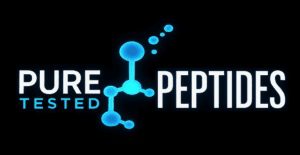MOTS-c Peptide: Clinical & Research Findings
MOTS-c is a mitochondrial-derived peptide (MDP) implicated in metabolic regulation and skeletal muscle adaptation.
Below is a clear, research-first summary of what studies report so far, along with practical notes for experiment design.
Looking for a research-grade reference page? Explore our listing:
MOTS-c 10 mg (Research Use Only)
What Is MOTS-c?
MOTS-c (mitochondrial open reading frame of the 12S rRNA-c) is a 16-amino-acid peptide encoded by mitochondrial DNA.
In experimental models, it helps coordinate metabolic homeostasis and cellular stress responses—often via AMPK-linked pathways and
cross-talk with nuclear gene expression.
Because it is not an approved drug, current interest centers on preclinical and early translational research.
For a product page suitable for laboratory procurement, see
PureTestedPeptides.com/products/mots-c-10mg/.
Mechanism (Research Context)
Core Pathways
- Regulation of glucose handling and metabolic homeostasis in skeletal muscle (preclinical).
- Activation of AMPK-associated signaling and transcriptional programs linked to stress adaptation.
- Mito-nuclear communication: modulation of nuclear gene sets tied to metabolism and proteostasis (preclinical).
Phenotypic Readouts
- Improved insulin sensitivity and resistance to diet-induced metabolic dysfunction in rodent models.
- Enhanced physical performance and exercise capacity in mice; exercise-responsive expression observed in humans.
- Exploratory effects on inflammation, myostatin signaling, and tissue resilience in select models.
Evidence Snapshot
| Domain | Key Takeaways | Evidence Type |
|---|---|---|
| Metabolic Homeostasis | Preclinical work shows MOTS-c helps counter diet-induced obesity and insulin resistance; improves glucose tolerance. | Rodent models; mechanistic cell studies1 |
| Exercise & Muscle | Mitochondrial-encoded MOTS-c is induced by exercise in humans and improves physical performance in mice across ages. | Human observational + mouse intervention2 |
| Aging & Stress Adaptation | Signals linked to proteostasis and metabolic stress responses suggest a role in resilience pathways (preclinical). | Mechanistic and animal studies1,2 |
1,2 See the two references listed below. This page is educational and does not make medical claims.
Interested in setting up a protocol comparison or logging results?
Keep your procurement consistent:
Order MOTS-c 10 mg for laboratory research.
Study Design Notes (Research-Only)
- Model selection: Many findings derive from high-fat diet (HFD) rodent models and cell systems—consider translational limits.
- Endpoints: Glucose tolerance, insulin signaling, skeletal muscle performance, transcriptomic signatures, and inflammatory mediators are common readouts.
- Timing: Intermittent dosing paradigms have been explored preclinically; align your schedule with clear primary endpoints.
- Controls: Include vehicle and, when relevant, exercise-matched comparators to isolate MOTS-c–specific effects.
- Safety monitoring: While animal data inform tolerability, human clinical safety/efficacy data remain limited; maintain rigorous lab safety standards.
FAQs (Educational)
Is MOTS-c clinically approved?
No. MOTS-c is not approved as a medicine. Publications to date are primarily preclinical, with early human observations around exercise responsiveness.
Does this page recommend any medical use?
No. This content is for scientific education only. For laboratory procurement, see the
MOTS-c 10 mg product page.
References (max 2)
- Lee C, et al. The mitochondrial-derived peptide MOTS-c promotes metabolic homeostasis and reduces obesity and insulin resistance.
Cell Metabolism. 2015;21(3):443-454.
PubMed - Reynolds JC, et al. MOTS-c is an exercise-induced mitochondrial-encoded regulator of age-dependent physical decline.
Nature Communications. 2021;12:4709.
Article
Compliance & Research-Only Notice
Pure Tested Peptides provides research-grade compounds for laboratory use only.
All information above is for educational and scientific discussion. Products are not medicines or drugs,
are not intended for human consumption, and have not been evaluated or approved by the FDA to diagnose, treat,
cure, or prevent any disease.
